19 Curious Finds That You Might Come Across Just Once in a Lifetime

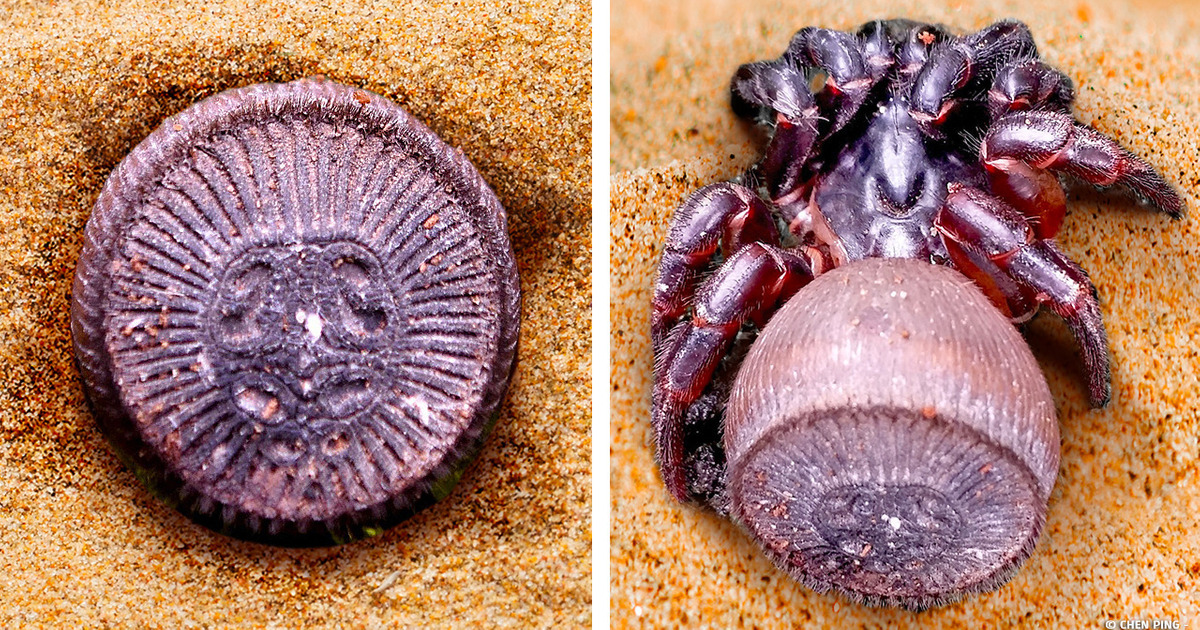
You’re walking along the riverbank. It’s quiet save for the water’s peaceful burbling. The hot Georgia sun beats down on your neck.
That’s when you notice something strange on the ground. Looks like a quarter-sized black coin with a weird pattern on it. You bend over for a closer look.
Is it a coin? This thing looks like an ancient seal with a symbol carved in it. It’s probably from some long-lost civilization! You could sell it and make a fortune!!!
You crouch down on one knee to pick up your newfound treasure. As soon as your finger touches it, you pull your hand back as fear wells in your gut. It’s hairy.
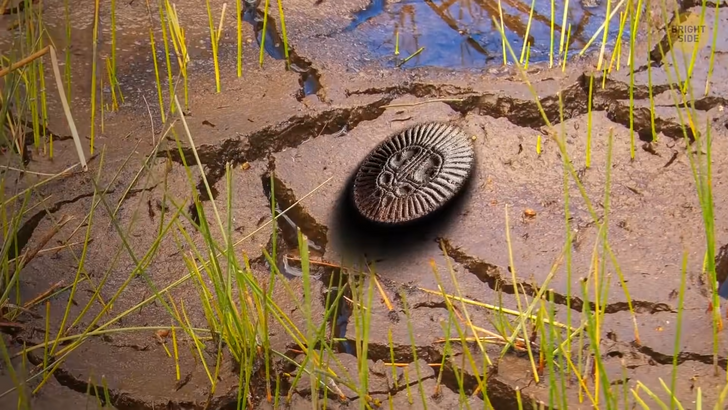
You go to pick it up again, digging your nails in the dirt around it to pull it out of the ground. That’s when... IT MOVES!!!
Your heart jumps in your throat. It’s pounding so hard you can feel it in your head. The fear turns to horror when the coin wiggles its way out of the ground. It’s no ancient treasure... it’s a huge spider!!!
A Ravine Trapdoor Spider, to be precise. This hard coin-looking growth on the back of its body serves as a shield. The 8-legged terrors burrow into the ground and plug it like a cork so hungry enemies can’t get to them. Or, ya know, giant confused humans like you.
This spider is venomous, but its bite isn’t toxic to humans. (Lucky you!) But I didn’t say you wouldn’t feel it! Best stay away from those sizeable pincer-like fangs — ouch!
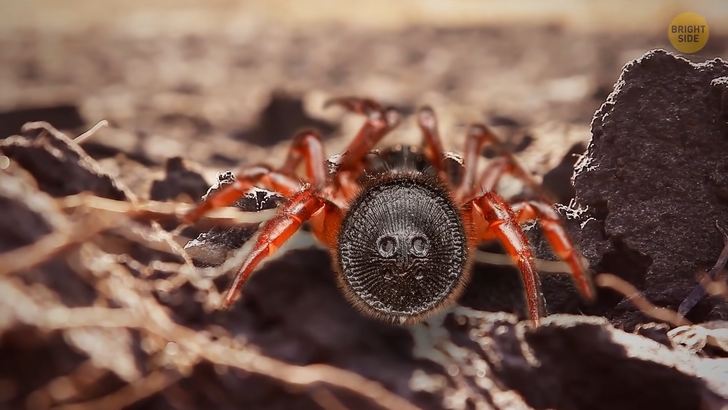
Well, so much for your riches. Perhaps fortune awaits you in Mexico’s Baja California Peninsula! You’re walking on dried-up ground when you notice a long white stripe up ahead.
You get closer. “Looks like a super long worm!” you think to yourself. But... it doesn’t move like any worm you’ve ever seen. That’s when you see it has arms! And a head!
This pale creature with black beady eyes is a Mexican Mole Lizard. It lives in the ground where all its dinner of insects and termites hang out. It rarely comes out, so you’re pretty lucky to have seen this bizarre reptile!
Now, you’re in a rainforest in northeastern Australia. Ahead, half-hidden among the trees, you notice something large and round. This mysterious figure lying on the ground is covered in black hair.
At first, you think it’s a bear curled up sleeping. But that wouldn’t make sense — there are no bears Down Under!
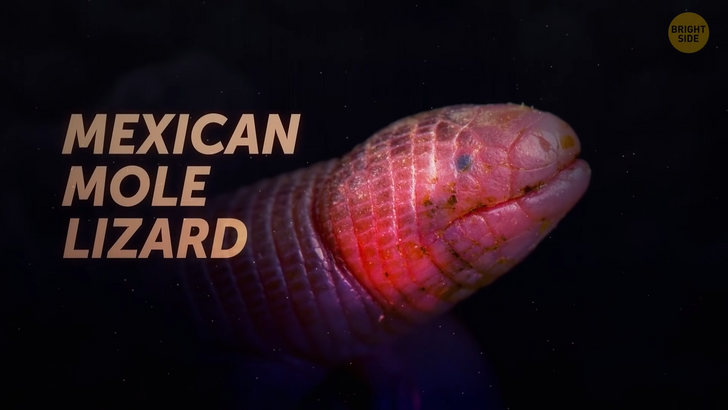
You’re getting closer when a twig snaps under your foot. The... “thing” hears you and springs to its legs. It turns to you, and you now see this is a bizarre and beautiful bird!
That black “hair” is actually a thick coat of long fine feathers. This formidable fowl has a bright blue head with a large horn on top.
It stands on two powerful legs with a dagger-like claw on each foot that can be as long as your hand! Take away those feathers, and you might mistake this thing for a Velociraptor! But it’s actually a Cassowary — the most dangerous bird in the world!
It could jump straight over your head if it wanted to. Definitely high enough to kick you in the chest. And its blows are strong enough to break bone. Not to mention that claw that can cut through anything like butter!
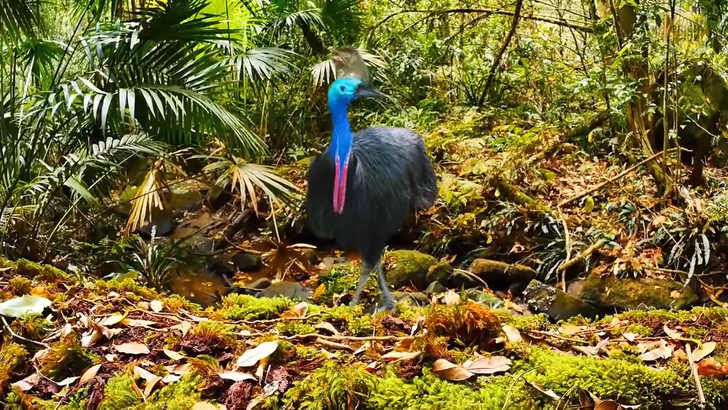
This bird was made to hunt and avoid being hunted. Don’t even consider running away — not unless you too can sprint over 30 mph!
Diving into that lake over there won’t save you either — this bird is an excellent swimmer! Best just back away slowly and hope it doesn’t come after you!
Another creature that proves its best to keep your hands to yourself is the Panda Ant. The naming is obvious — it’s black and white and furry like the beloved bamboo-chewing bear.
This furry little bugger lives in the forests of Chile. But don’t go to pet this fluffy little ant! What you’re looking at is no ant at all. It’s a species of Wasp!
That black and white coloring serves one purpose: to warn others of this insect’s powerful sting! And if that doesn’t make you back away, the wasp will let out a squeaking sound. It sounds cute to us humans, but it means a painful sting is around the corner!
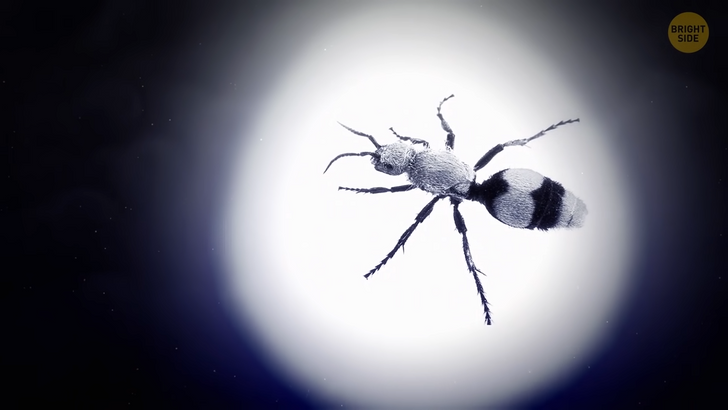
These insects are loners, don’t live in colonies, and don’t have nests. They’re also parasites. A female panda ant lays eggs next to the larvae of another insect. Then, the hatched babies use these larvae as food.
Surely you’ve seen bugs that look like leaves and twigs. But what about a creature that looks like a beautiful orchid? You can find this fragrant flower in the forest or a green field among other plants.
But make sure that’s a flower you’re leaning in toward to smell! If it’s not, you risk being bitten by a praying mantis!
The Orchid Mantis is nearly impossible to distinguish among the flowers. It has white-pink coloring with legs and claws that look identical to little petals.
It uses its resemblance to the plant to hide from predators and hunt insects that love these flowers. A butterfly or bee flies up to the “flower” when one of the petals starts moving.
The unsuspecting meal might take it as simply the wind. But then the petal turns into a sharp claw that suddenly grabs the insect!
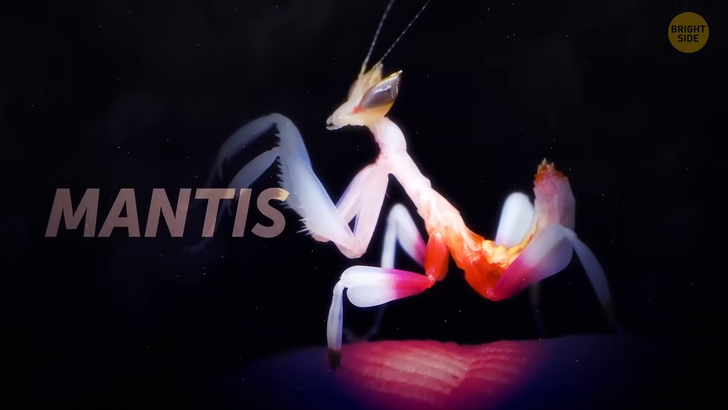
Now imagine you’re in the jungles of Costa Rica. You notice a brown snake sitting on a tree branch in front of your face. The snake looks like it’s about to strike! You want to run away as far as possible, but notice that this snake is unusually short. And it doesn’t lash out at you.
You wait, but the snake keeps staring at you. It doesn’t even hiss. Lucky for you, it’ll never bite because it’s not a snake, but a caterpillar!
The Hawk Moth Caterpillar can change the shape of its body to look like a menacing serpent. This easily scares away any hungry foes.
The coloring and pattern on the skin imitates a snake’s scales and eyes. This insect also knows how to move like the reptile! A master of disguise this one!
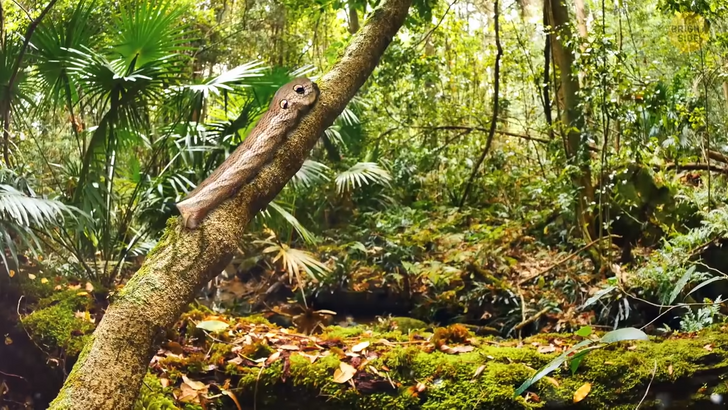
Let’s get out of the hot jungle and head to Central Europe. You’re in the middle of a sunny green meadow. Colorful flowers bloom around, birds sing, and bees buzz by.
Among the bees, some are not what they seem. You’ll hardly be able to distinguish the imposters. But if you really look closely, you’ll see the Golden Bee Fly moving through the air. It looks like a bumblebee, but it’s the buzzer’s biggest enemy!
The Golden Bee Fly sneaks into bee nests and lays eggs there. Its larvae hatch and feed on the bees and flower nectar. The yellow and black coloring allows the intruder to go undetected the whole time!
The camouflage also keeps enemies away. Nothing would touch this fly if it thinks it’ll get a bumblebee sting!
The next spot on your journey is the rainforest in southern Thailand. Now be extra careful, and watch your step! Not because the next animal is poisonous or bites, but because you might accidentally step on it!
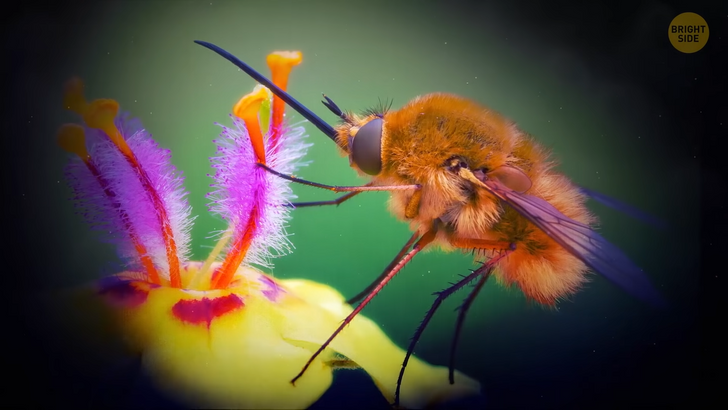
The leaves from the trees have fallen and turned a gray-brown hue. Among these leaves, it’s tough to distinguish the Malaysian Horned Leaf Frog.
Its body shape, coloring, and especially those pointy growths coming out above its eyes — all allow this amphibian to hide perfectly among the fallen foliage. This frog can sit for hours in one place waiting for its next meal to come close enough to — gulp!
Now you’re in a garden. You see a beautiful bright flower and a small bird hovering near it. The bird flaps its wings so quickly you can hardly see them.
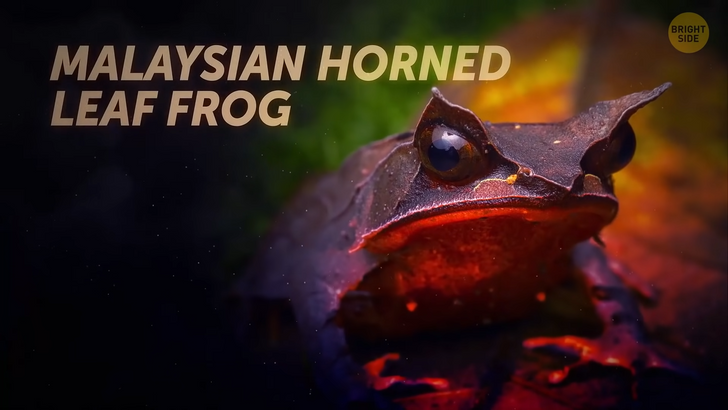
And that long needle-like beak makes you immediately assume you’re looking at a hummingbird! But as soon as you get closer, you realize this is not a bird, but an insect!
Fortunately, the Hummingbird Hawk-moth isn’t venomous and doesn’t sting. It’s just a lovely little creature that decorates the garden with its presence.
Many people even grow plants rich in nectar to attract these moths! Hey, there’s an idea!











